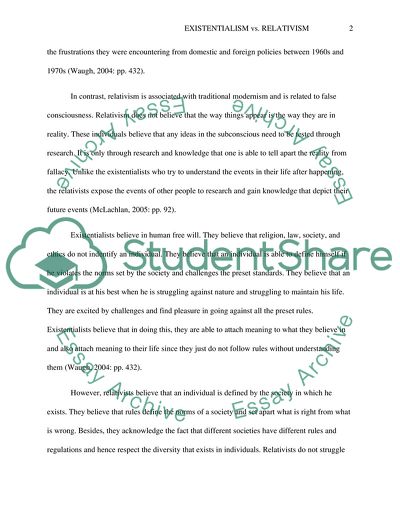Cite this document
(Existentialism and Relativism and the Diversity Between Individuals Essay Example | Topics and Well Written Essays - 1500 words - 1, n.d.)
Existentialism and Relativism and the Diversity Between Individuals Essay Example | Topics and Well Written Essays - 1500 words - 1. https://studentshare.org/philosophy/1763841-existentialism-vs-relativism
Existentialism and Relativism and the Diversity Between Individuals Essay Example | Topics and Well Written Essays - 1500 words - 1. https://studentshare.org/philosophy/1763841-existentialism-vs-relativism
(Existentialism and Relativism and the Diversity Between Individuals Essay Example | Topics and Well Written Essays - 1500 Words - 1)
Existentialism and Relativism and the Diversity Between Individuals Essay Example | Topics and Well Written Essays - 1500 Words - 1. https://studentshare.org/philosophy/1763841-existentialism-vs-relativism.
Existentialism and Relativism and the Diversity Between Individuals Essay Example | Topics and Well Written Essays - 1500 Words - 1. https://studentshare.org/philosophy/1763841-existentialism-vs-relativism.
“Existentialism and Relativism and the Diversity Between Individuals Essay Example | Topics and Well Written Essays - 1500 Words - 1”. https://studentshare.org/philosophy/1763841-existentialism-vs-relativism.


